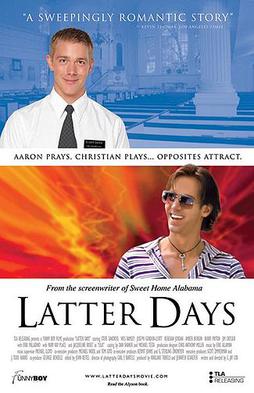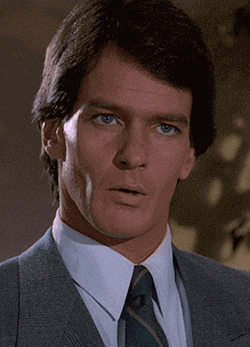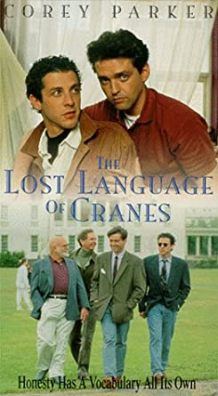Related Research Articles
Outing is the act of disclosing an LGBT person's sexual orientation or gender identity without that person's consent. It is often done for political reasons, either to instrumentalize homophobia in order to discredit political opponents or to combat homophobia and heterosexism by revealing that a prominent or respected individual is homosexual. Historical examples of outing include the Krupp affair, Eulenburg affair, and Röhm scandal.

Coming out of the closet, often shortened to coming out, is a metaphor used to describe LGBT people's self-disclosure of their sexual orientation, romantic orientation or gender identity.

Tess of the d'Urbervilles: A Pure Woman is a novel by Thomas Hardy. It initially appeared in a censored and serialised version, published by the British illustrated newspaper The Graphic in 1891, then in book form in three volumes in 1891, and as a single volume in 1892. Although now considered a major novel of the 19th century, Tess of the d'Urbervilles received mixed reviews when it first appeared, in part because it challenged the sexual morals of late Victorian England.

James Edward McGreevey is an American politician who served as the 52nd governor of New Jersey from 2002 until his resignation in 2004.

Latter Days is a 2003 American romantic comedy-drama film about a gay relationship between a closeted Mormon missionary and his openly gay neighbor. The film was written and directed by C. Jay Cox and stars Steve Sandvoss as the missionary, Aaron, and Wes Ramsey as the neighbor, Christian. Joseph Gordon-Levitt appears as Elder Ryder, and Rebekah Johnson as Julie Taylor. Mary Kay Place, Khary Payton, Erik Palladino, Amber Benson, and Jacqueline Bisset have supporting roles.

Wilde is a 1997 British biographical romantic drama film directed by Brian Gilbert. The screenplay, written by Julian Mitchell, is based on Richard Ellmann's 1987 biography of Oscar Wilde. The film chronicles the turmoil in Wilde's life after he discovers his homosexuality. It stars Stephen Fry in the title role, with Jude Law, Vanessa Redgrave, Jennifer Ehle, Gemma Jones, Judy Parfitt, Michael Sheen, Zoë Wanamaker, and Tom Wilkinson in supporting roles.
Ayn Rand, author and developer of Objectivism, held controversial views regarding homosexuality and gender roles. Although Rand personally viewed homosexuality negatively, considering it immoral and disgusting, she endorsed non-discrimination protection for homosexuals in the public sphere while opposing laws against discrimination in the private sector on the basis of individual rights.

Making Love is a 1982 American drama film directed by Arthur Hiller and starring Kate Jackson, Harry Hamlin and Michael Ontkean. The film tells the story of a married man coming to terms with his homosexuality and the love triangle that develops between him, his wife and another man.
Fifth of July is a 1978 play by Lanford Wilson. Set in rural Missouri in 1977, it revolves around the Talley family and their friends, and focuses on the disillusionment in the wake of the Vietnam War. It premiered on Broadway in 1980 and was later produced as a made-for-television movie.
"Corner Boys" is the eighth episode of the fourth season of the HBO original series The Wire. Written by Richard Price from a story by Ed Burns & Richard Price, and directed by Agnieszka Holland, it originally aired on November 5, 2006.
"Misgivings" is the tenth episode of the fourth season of the HBO original series The Wire. Written by Eric Overmyer from a story by Ed Burns & Overmyer, and directed by Ernest Dickerson, it originally aired on November 19, 2006.
"Final Grades" is the 13th and last episode of the fourth season of the HBO original series The Wire. Written by David Simon from a story by David Simon & Ed Burns and directed by Ernest Dickerson, it originally aired on December 10, 2006. With a running time of 78 minutes, it is the second longest episode of the whole series and received critical acclaim.

Adam Alexander Carrington is a fictional character from the ABC prime time soap opera Dynasty, created by Richard and Esther Shapiro. Introduced at the beginning of the series' third season, the role was originated by Gordon Thomson in 1982. He continued to appear as a series regular until the series finale in 1989. For the 1991 miniseries continuation, the role of Adam Carrington was recast with Robin Sachs as Thomson was unavailable. In the 2017 reboot of the series, Sam Underwood played Adam from 2019 to 2022.
That Certain Summer is a 1972 American made-for-television drama film directed by Lamont Johnson. The teleplay by Richard Levinson and William Link was considered the first sympathetic depiction of gay people on American television. Produced by Universal Television, it was broadcast as an ABC Movie of the Week on November 1, 1972, and received a number of television awards and nominations. The movie was also recognized as being the first network drama to depict a stable, same-sex couple; the first to depict a gay parent; and the first gay themed show to win an Emmy, with Scott Jacoby winning for his performance. A novelization of the film written by Burton Wohl was published by Bantam Books.

The Lost Language of Cranes is a 1991 British made-for-television drama film directed by Nigel Finch. It was adapted for television by Sean Mathias, based on the 1986 novel of the same name by David Leavitt. The film was produced by the BBC for their Screen Two series, and aired on 9 February 1992 after being shown at the London Film Festival in November 1991. It stars Brian Cox, Eileen Atkins, Angus Macfadyen, Corey Parker, Cathy Tyson, John Schlesinger, René Auberjonois, Ben Daniels and Nigel Whitmey. Cox was nominated for a British Academy Television Award for Best Actor.
"Unconfirmed Reports" is the second episode of the fifth season of the HBO original series The Wire. The episode was written by William F. Zorzi from a story by David Simon & William F. Zorzi and was directed by Ernest Dickerson. It originally aired on 13 January 2008.
"The Dickensian Aspect" is the sixth episode of the fifth season of the HBO series The Wire. The episode was written by Ed Burns and was directed by Seith Mann. It aired on February 10, 2008.
"Late Editions" is the ninth episode of the fifth season of the HBO original series The Wire, the penultimate episode of the series. The episode was written by George Pelecanos from a story by David Simon and George Pelecanos and was directed by Joe Chappelle. It aired on March 2, 2008.
Letters from Three Lovers is a 1973 made-for-television drama film directed by John Erman. An ABC Movie of the Week and a sequel to The Letters (1973), the film is co-produced by Aaron Spelling, written by Ann Marcus and stars Martin Sheen, Belinda Montgomery, Robert Sterling, June Allyson, Ken Berry and Juliet Mills, among others.

Barbie Dolphin Magic or Barbie: Dolphin Magic is a 2017 animated adventure television film directed by Conrad Helten and written by Jennifer Skelly.
References
- 1 2 3 4 "'Consenting Adult' As Gay Son" by Lee Margulies, Los Angeles Times , January 31, 1985. Retrieved on August 21, 2016.
- ↑ "'Consenting Adult' Is Not Of Age by Tom Shales, Chicago Tribune , February 4, 1985. Retrieved on August 21, 2016.
- ↑ "TV View: The Networks Haven't Quite Forsaken Quality Drama by John J. Connor, The New York Times , February 3, 1985. Retrieved on August 21, 2016.